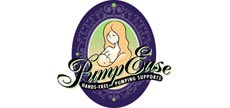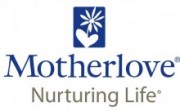By Elita Karma. Posted on August 16, 2010
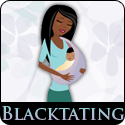
By Elita of Blacktating.com for the Best for Babes Foundation ©2010
Remember last week when supermodel Gisele Bundchen said she thought there should be a law requiring moms to breastfeed for 6 months? Well, she got her wish. Indonesia passed a law that will go into effect in October that states that all women who are medically able to breastfeed must do so for at least 6 months. Mothers who decline will face up to a year in jail or a $15,000 fine.
Did you hear the one about the breastfeeding advocate who is formula feeding her baby? That was the secret Attachment Parenting guru Katie Granju revealed on her blog this week. Katie, who lost her eldest child weeks before giving birth, said the stress caused her mature milk to never come in. After trying every technique she knew, she finally came to the realization that her baby girl will have to be on formula. A good reminder that when we see moms bottle feeding in public, we don’t know their stories or how hard they may have tried to breastfeed without success.
I loved this article highlighting two hospitals in the Tampa area who are encouraging and supporting moms with babies in the NICU to breastfeed. Nearly 80% of the moms of these sick babies are nursing. Many have said they would have given up a long time ago if not for the support systems in place at the hospital. Don’t you love it when the hospital gets it right and is promoting breastfeeding instead of booby trapping moms?
The Health Ministry in China investigated claims this week by parents who complained, their baby girls began to develop breasts after drinking a particular brand of infant formula. The ministry says “no link” can be found between the formula and the breast growth.
Dr. Thomas Hale, the go-to doctor for information on medicines and breast milk, has opened his Infant Risk Center. This call-in center is now open to take calls from professionals and parents. There is no charge for this fantastic service that will provide accurate, evidence-based information on medications that are safe during pregnancy and lactation.
And just when you thought it was safe to leave the house with your kids, yet another mom has been kicked out of a public place for breastfeeding her baby. This time it was McDonald’s. The owner of the restaurant has apologized, but I’m getting a little tired of reading this story over and over again.
The National Health Promotion Strategy kicked off their “Well Bermuda” program with a Breastfed Baby Photo Exhibit this week. The Minister of Health in Bermuda said of the exhibit: “Every baby displayed on these walls is a winner simply because they were fortunate enough to be given the greatest of gifts.” I agree!
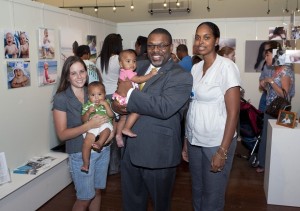
Breastfed Baby Photo Exhibit
By Elita Karma. Posted on August 1, 2010

By Elita of Blacktating.com for the Best for Babes Foundation ©2010
Happy World Breastfeeding Week, everyone! This year’s WBW theme is “Just 10 Steps: Breastfeeding the Baby Friendly Way” and refers to working to eradicate the “booby traps” so many moms face in the hospital. Moms would be more much successful with breastfeeding if hospitals made 10 simple changes, including creating breastfeeding policies, practicing rooming in and not giving bottles and pacifiers to breastfeeding infants. There are also tons of activities going on across the globe to celebrate. Will you be attending an event in your neck of the woods?
In honor of World Breastfeeding Week, the Academy of Breastfeeding Medicine is offering free access to Breastfeeding Medicine, their official peer-reviewed journal for the entire month of August!
No breastfeeding allowed when trying to become a lactation consultant? That’s what a mom in Italy claims she was told by the International Board of Certified Lactation Examiners when she asked to bring her 3-month-old nursling with her while she sat for the IBCLC exam. Reaction seems to be bemusement at the apparent irony, with many people stating the mom should be given extra time, allowed to bring her baby into the exam room or some other accommodation. In America, IBCLE allows moms of exclusively breastfed infants to take extra breaks to feed their baby outside of the exam room, but doesn’t allow them to make up the time. So what do you think IBCLE should have offered this mom? Is this decision hypocritical or do babies not belong in exam halls?
This week a new study revealed that older and overweight moms are more likely to see a delay in their milk coming in. The research shows that first-time moms over the age of 30 and those who are overweight are more at risk of delayed lactogenosis. This happened to me, with my milk coming in around day 5, rather than day 3. Judy at A Mother’s Boutique had the same issue. This is important to note because it could be a potential “booby trap” if moms are told to supplement until their milk comes in. 98% of women have a full milk supply by day 7.
Although it was funny when it happened on The Office, the report that a woman breastfed the wrong baby at a Virginia hospital is nothing to laugh about. When a new mom agreed to have her baby taken to the nursery so she could rest, she never expected a hospital aide would forget to match up the ID bands and bring her baby to another woman to be breastfed. Fortunately, the woman who nursed her baby has tested negative for HIV and other diseases, but the article warns that no one really knows how often these mix-ups happen, as there is no reporting required as long as there is no serious harm. A lower risk of switcheroos is one of the unexpected benefits of “rooming in,” one of the 10 Steps!
This week on our Facebook page, we asked you why you chose to breastfeed your babies. You had some amazing answers, including:
Cassaundra Blythe: The same reason I “chose” to breathe, or love my husband, or eat or become a mother. It’s a normal thing for women to do.
Ashley Poland: The cost and the reduced instances of SIDS. As a first time mom, I was terrified of it.
Carla Richardson Rush: I love them!
Jamie Moore Lowe: It just makes sense. Good for them, good for me!
By Elita Karma. Posted on July 19, 2010

By Elita of Blacktating.com; for the Best for Babes Foundation ©2010
This was an amazing week for Best for Babes, as we found out Tuesday that we won a $20,000 donation from Chase, thanks to all of you who voted in the contest on Facebook! We are so grateful and want to thank you for all you’ve done for the Mother of All Causes.
Thanks to Tanya at the Motherwear Blog for uncovering even more good news in the Health Care Reform bill related to breastfeeding. Apparently buried in those new regulations is the requirement that insurance reimburse for preventive health services, including breastfeeding education & evaluations, both in hospital and outpatient settings. No one is still sure when this all goes into effect or what exactly it means for moms, but we’ll be sure to keep you posted!
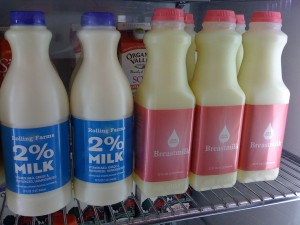
Photo courtesy of The Faster Times
Here’s to the adoptive parents who educated their pediatrician on the importance of human milk and the availability of donor milk through milk banks. Dr. Jack Maypole’s excellent article highlights how he was able to write a prescription for breast milk for the family, the history, availability and safety of human milk. The article points out that we only have a handful of milk banks in the US, while Brazil has about 180. We’re getting better, though: the Mother’s Milk Bank of New England opened this week in Massachusetts.
Whoever said one person can’t make a difference never met Amanda Mack! After receiving a “breastfeeding support bag” from a formula company after the birth of her second baby, Amanda decided to contact all of the companies she knew that truly supported nursing moms and asked them to donate products for a real support bag to hand out at her local hospital. With that, the Laramie Breastfeeding Bag project was born! Amanda has been able to provide 125 bags so far. Interested in creating a bag for your local hospital? Check out the Laramie Breastfeeding Bag project’s Facebook page for details how.
As a mom who worked and pumped, I could so relate to the article This Sucks: Breast Pumping at Work. This is the perfect example of how far we still have to come in this country and why family-friendly policies like paid leave, babies at work programs, on-site day care and protection for moms who are pumping at work are so important.
I’d also like to shine the Blog Spotlight on Anne of Dou-la-la this week for her insightful post on the difference between “can’t” and “won’t” when it comes to breastfeeding. We wish that every mom had the support to meet her breastfeeding goals, but we also wish that moms who didn’t choose to breastfeed felt comfortable enough to be honest about their decision, without worrying they’d be judged for their decisions.
And finally, now that summer is here, we want to remind you of the importance of soaking up some sun so you can make adequate levels of Vitamin D for both yourself and your nursling! It’s particularly important to make sure your Vitamin D levels are adequate if you are a woman of color or live in a northern climate where you go months without a lot of sunshine.
By Bettina. Posted on March 3, 2010
Today, March 3rd 2010 is IBCLC Day as designated by ILCA-the International Lactation Consultant Association. (IBCLC stands for International Board Certified Lactation Consultant.) This year’s theme is “Experience You Can Trust.” Best for Babes would like to congratulate ILCA on 25 years, and salute the thousands of incredible, dedicated lactation professionals who are helping moms and babies breastfeed every day. While there are still not enough lactation consultants (IBCLCs) per capita in every region, the numbers are growing, as is the awareness of the critical role that IBCLCs play in the mother-baby breastfeeding relationship. Given breastfeeding’s power to reduce the risk of diseases in mother and baby, IBCLCs are truly helping to save two lives for the price of one. If you were fortunate enough to have the help of a great lactation consultant, we hope you will stop right now, and send them a note and thank them. Trust us, they don’t make nearly what they are worth (though we do think health insurance should covered the cost fully, based on reduced lifetime risk of disease and hospital visits). As was beautifully described in the recent New York Times article, lactation consulting is a science and an art, and it is time we gave them their due. We have had the wonderful opportunity to meet amazing IBCLCs (and even a few MD IBCLCs-fancy that!) and we worship the ground they walk on.
We also thought IBCLC day was a great opportunity to talk about a hidden “booby trap” that moms need to know about and know how to navigate. All too often, new parents are getting poor breastfeeding guidance from so-called hospital lactation experts, some of whom are not even experts at all! How do we know? It happened to us!
Bettina: I was having a lot of trouble latching my first baby in the day after he was born. I had seen what seemed like an endless parade of nurses on duty, all of whom had different advice for me and my newborn. Finally I asked if there was a lactation consultant available to help me latch my son. The so-called specialist on call marched in my room, and barely said hello before she yanked my boob and gruffly moved my baby so she could shove my breast into his wailing mouth. “There you go,” she said, and marched back out. I can not describe how offended and humiliated I felt, and how my already flailing confidence in my ability to learn to breastfeed was completely eroded.
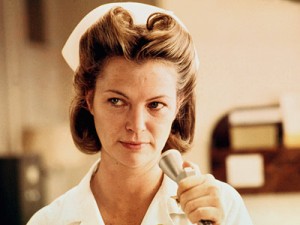
Remember indifferent Nurse Ratched in One Flew Over the Cuckoo's Nest?
Sound familiar? We have heard far too many horror stories of moms like this one; stories of so-called lactation “specialists” who took one look at a vulnerable new mother’s exposed breasts, and shook their heads, non-chalantly crushing that new mother’s hopes and dreams. Giving out nipple shields like they are candy, telling a mom that she will have difficulty breastfeeding because her nipples are too small, too large, or too flat, recommending nighttime formula-feeding so that mom doesn’t “wear herself out,” are just some examples of routine, non-evidence-based — i.e., bad — advice given out daily which can spoil breastfeeding, often for good. To be sure, there are excellent, gifted lactation consultants (IBCLCs) and lactation counselors (CLCs) all over, both hospital-based and in private practice. There are also many wonderful nurses who go above and beyond to help mothers succeed in achieving their breastfeeding goals. Unfortunately, however, the Centers for Disease Control found that most hospitals perform poorly on breastfeeding support. It is a crying shame, but new parents can’t assume that every hospital with a maternity center-some 3,000 in the U.S.-will provide quality breastfeeding help. Unless the institution itself has been designated “Baby-Friendly” (and only 3% are) or has a proven track record of high breastfeeding initiation and continuation rates, you will very likely find an awful lot of lip-service to “breast is best”, and along with it, imposters – nurses dubbed “lactation specialists” who have only received a few hours of uncredentialed breastfeeding education, or who have enhanced their paychecks and credentials by taking the IBCLC test but don’t display competency (or much compassion), and don’t seem to stay true to evidence-based breastfeeding management. And the real lactation “pros?” There are many awesome, talented lactation consultants who are crushed under an impossible caseload and unable to deliver the care they are capable of. And often they are like lone wolves running against a pack of nurses and physicians, and pushing against outdated hospital policies.
The cost of this masquerade is very high, and those who are committed to delivering excellent breastfeeding care have known this for a long time: Relying on poor quality lactation support and having a miserable breastfeeding experience, can be a bigger blow for moms personally, and for breastfeeding in general, than not having received help at all. Moms who go down this road of getting quasi-help and failing will be absolutely convinced that they are fundamentally incapable of breastfeeding, and worse, even that it was their fault. Their collective experiences also validates the common myth that large numbers of moms “can’t” breastfeed or that breastfeeding is always horrendously difficult. Their destroyed confidence can affect how they feel about mothering this child, can carry over to their next newborn, can discourage their peers, and can provoke understandable defensiveness and anger against those who well-meaning friends, health care providers or advocates who harp on about breastfeeding.
So, what is an expecting or new mom to do? We encourage you to educate yourself and to be empowered as you choose where you will deliver your baby, and as you go through the birth and new mother experience. This doesn’t mean that we want you to be a nightmare patient; it is always a good idea to be pleasant and respectful as you advocate for yourself and your babe. We have a great deal of respect and admiration for the thousands of health care professionals whose job is to take care of us when we are at our most vulnerable, and a little courtesy goes a long way. That said, unless moms start asking questions and requesting that hospitals provide truly excellent breastfeeding support, nothing will change.
Here are some suggestions:
- Rely on word of mouth. If you haven’t joined a breastfeeding support group, do so now, and get the skinny on which birth centers and hospitals are best for breastfeeding support. You may be lucky and have a Baby-Friendly Hospital nearby! If you can’t find a breastfeeding group, tap into the doula and midwife community in your area: these professionals are a wealth of information.
- Have a back-up plan: bring the numbers of a few recommended, independent lactation consultants (IBCLCs) or proven excellent lactation counselors (CLCs) with you, even better, interview a few in advance and put the number of the one you are most comfortable with in your speed dial. Again, it’s best to find qualified help by word of mouth through a breastfeeding support group, the birth community, or even a baby store. You can also go to http://www.ilca.org and search for lactation consultants by zip code.
-
Get to know your lactation consultant.
Heather Kelly, IBCLC, teaches a breastfeeding class in NYC and gives workshops through BigCityMoms.com
Read What to Look for In a Lactation Consultant by Heather Kelly, IBCLC. Interview potential LCs by phone first; do they make housecalls? Do they take your insurance? How are fees structured? Do they run a support group? Most importantly, does their style mesh with your parenting philosophy?
- Know excellence. Quality lactation counselors are highly trained, compassionate, and have your and your baby’s best interest at heart. They are excellent listeners, will take your breastfeeding history, will be professional, and will always ask for permission before examining you or helping you with a breastfeeding position, hand expression, or the like. They want to make sure you have all the information you need to make an informed decision so you can begin the parenting journey with confidence, no matter what your final decision is, whether to breastfeed, formula-feed or a combination of both. (Like a good coach, though, they will want to help bring out your best, and are likely to encourage and motivate you to try breastfeeding for a while before you make a final decision.)
- Watch for red flags: anyone who touches you without asking, judges you, or humiliates you is not acceptable. You may want to take down their name and the details of what happened and consider further action. Hospitals want to serve their patients and will want to know if the quality of their care in any arena is unacceptable. Wait until you’ve caught up on sleep to make sure you have a good perspective.
- Prepare for breastfeeding before birth. Read our Ultimate Breastfeeding Preparation Checklist, learn how to find your A-team (ob-gyn, hospital, pediatrician), read the Learning Curve, and How to Get Your Best Game On, for starters. Pregnancy lasts nine months but the benefits of breastfeeding last a lifetime for you and your babe, babe! Decorating the nursery is fun but knowing how to navigate booby traps is essential.
How does excellent care look from the perspective of a lactation consultant? Not to set the bar impossibly high, but here is the experience of Nikki Lee, RN, IBCLC, a wonderful lactation consultant (and my teacher during my CLC training), taken from her comment on our post about Healthy Children:
Nikki Lee, RN, IBCLC: a great lactation consultant and educator
I loved my work as a hospital LC. My favorite thing was to invite the baby into the conversation and encourage the mother to put her baby skin to skin, then pull up a chair and sit and chat. Neither the mother nor I could see the baby because it was under a blanket on the mom’s chest.
Half the time, in the middle of our conversation, the mother would get an amazing surprised look on her face and say,”My baby is breastfeeding”. I LOVE THAT!!. No work on her part, we were having a good time together, and the baby showed the mother that breastfeeding could be very easy.
The stuff I didn’t like about the hospital experience was having to fight against the ignorance of some hospital staff who were suspicious of skin to skin and totally convinced that giving the baby a bottle of formula was the solution to most problems and challenges. I didn’t like that mothers and babies were never left alone to figure things out for themselves. I didn’t like the time presssure, that a baby would have to nurse by “X” number of minutes, or else.
I really didn’t like how mothers and babies were injured and disconnected from each other as a result of birth technology and surgery and induction. It was so difficult to get breastfeeding going when a mother was recovering from surgery and her baby was premature.
I also didn’t like that so many staff people wouldn’t want to know anything about breastfeeding even when invited to watch me and learn. They would just wait for me to come to work so that I could take care of all the mothers. Breastfeeding is everyone’s business, not only a LC’s!
Every once in a while, I would encounter a mother that didn’t want my visit. Sometimes it was because she’d nursed a bunch of other babies and felt confident. Sometimes it was because she’d heard bad things about LCs. That was hard to hear.
I loved to see the mothers that had chosen not to breastfeed. I wanted to be sure they knew how to be comfortable with their breasts that would have to dry up. I would sit down and chat with these mothers, and after some conversation, ask how she made her infant feeding decision. Half the time, the reason she’d made her choice was out of some misconception about breastfeeding. When that misconception was corrected, some mothers would change their minds. That was exciting. The other times, where the mothers were absolutely definite about their choice, I would ask them to tell me more so I could learn about their lives and the reasons for their choice. This was important and humbling.
Any strategies you have used to ensure you get excellent lactation care in the hospital or birth setting?





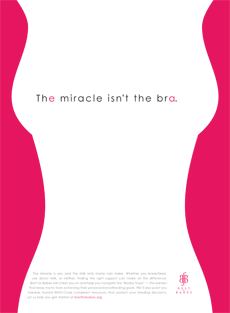
 @BestforBabes
@BestforBabes Best For Babes
Best For Babes


